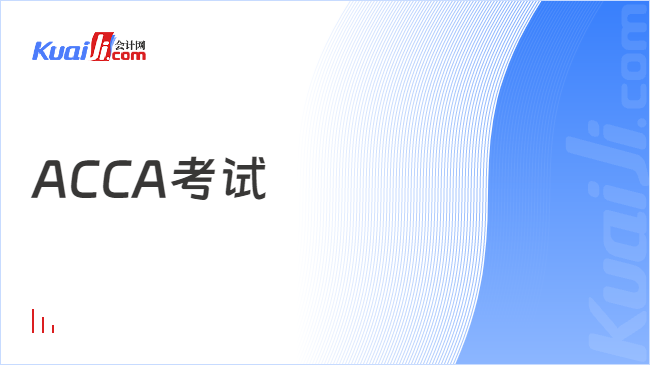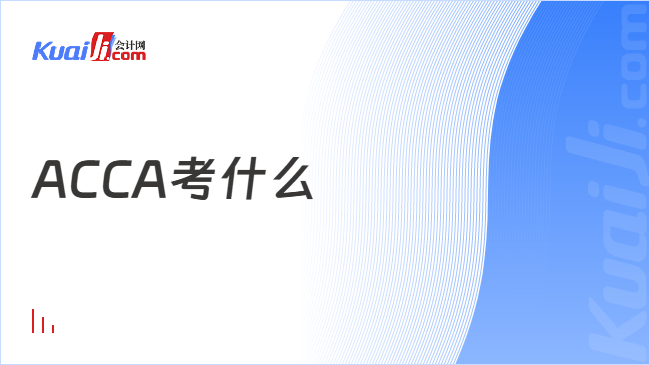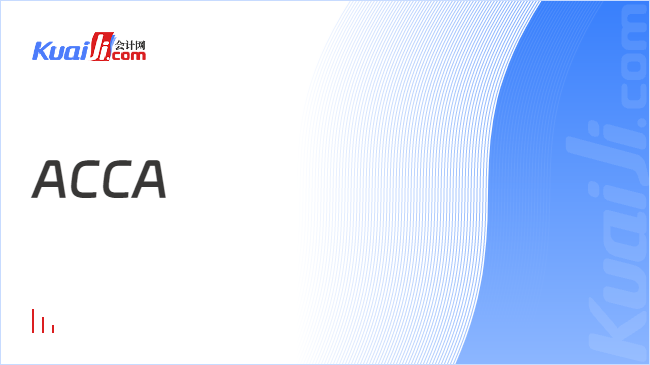2021年ACCA知識(shí)點(diǎn)講解:Money laundering
在ACCA考試中,有一個(gè)比較有趣的知識(shí)點(diǎn)值得大家所關(guān)注的,那就是“Money laundering”,中文也就是洗黑錢(qián)的意思,下面會(huì)計(jì)網(wǎng)就跟大家詳解這個(gè)考點(diǎn)內(nèi)容。

01、什么叫Money laundering?
有些錢(qián)款的來(lái)路不正,不是合法的,即為“黑錢(qián)”(dirty money)。把黑錢(qián)變成合法收入(clean money)的過(guò)程,就叫洗錢(qián)。
上個(gè)世紀(jì)美國(guó)黑手黨在芝加哥開(kāi)了一家投幣式洗衣店,每天晚上結(jié)算洗衣收入的時(shí)候,把贓款混入其中,這樣向稅務(wù)局申報(bào)納稅后就成了他們的合法收入,這就是“洗錢(qián)”一詞來(lái)歷。
02、Money laundering三步驟
第一步,Placement:對(duì)非法收入的安置。
也就是把非法收入與合法收入混合放在一起。特別存在于現(xiàn)金大量流通的行業(yè)(cash-based business)。而剛才說(shuō)的投幣式洗衣店正是cash-based business的一種,這種特殊的行業(yè)性質(zhì)特別容易有洗黑錢(qián)的風(fēng)險(xiǎn),因?yàn)槔锩娴娜魏我慌_(tái)洗衣機(jī)到底收了多少錢(qián)是不知道的。
第二步,Layering:分層。
transfer of money from place to place,通過(guò)復(fù)雜的交易隱藏非法收入,轉(zhuǎn)移財(cái)產(chǎn)。比較常見(jiàn)的就是將錢(qián)款轉(zhuǎn)移到海外。這樣就加大了追查的難度
第三步,Integration:整合。
經(jīng)過(guò)一系列分層轉(zhuǎn)移變成了看似合法的資金。最后將錢(qián)款通過(guò)投資等方式進(jìn)入合法的經(jīng)濟(jì)活動(dòng)之中。
大家在考試中需要理解與背誦洗黑錢(qián)的三個(gè)步驟。當(dāng)然真正在現(xiàn)實(shí)中,這三個(gè)步驟都是交織的。在世界各國(guó)洗錢(qián)都是一個(gè)非常嚴(yán)重的刑事犯罪行為,各個(gè)事務(wù)所都應(yīng)該實(shí)行相關(guān)的反洗錢(qián)程序,于是anti-Money laundering就來(lái)了
03、如何Anti-Money laundering
AML procedures which audit firm should have in place:
1.Appointment of a Money Laundering Reporting Officer (MLRO),who should have a suitable level of seniority and experience; usually this would be a senior partner in the audit firm指定一名位高權(quán)重的管理層作為洗錢(qián)報(bào)告官 (MLRO)
2.Conduct customer due diligence procedures. (KYC)Audit firms must establish the identity of clients using documents such as certificates of incorporation and passports, and shouldobtain information about business activities in order to gain an understanding of matters such as sources of income, and the rationale for business transactions在客戶(hù)挑選上盡職調(diào)查,避免服務(wù)有黑歷史或者疑點(diǎn)的公司
3.Enhanced record keeping. Audit firm must ensure that it maintains records of client identification procedures, and of all transactions relevant to audit clients, for example, the receipt of cash for services performed.在審計(jì)過(guò)程中注重記錄工作。
4.Communication and training. A training programme is essential, to ensure that individuals are aware of the relevant legislation and regulations regarding money laundering. Individuals should also be trained in the firm’s identification, record keeping and reporting policies.針對(duì)職員加強(qiáng)相關(guān)知識(shí)的培訓(xùn),制定相關(guān)政策,如記錄政策、報(bào)告渠道等
各位學(xué)員還需要了解和掌握的是有關(guān)洗錢(qián)的罪行
04、Three categories of offence
(a)Laundering(直接參與洗錢(qián)罪)being the offences of concealing,disguising,converting,transferring,or removing criminal property from the UK
(b)Failure to report(未報(bào)告罪)針對(duì)的人群是一般是會(huì)計(jì)師,比如會(huì)計(jì)師雖未參與洗錢(qián),但明知道自己的老板在洗錢(qián),沒(méi)有向National crime agency報(bào)告,此時(shí)便是failure to report。
(c)Tipping off(通風(fēng)報(bào)信罪)例如警察要去抓捕洗錢(qián)犯,結(jié)果審計(jì)師/會(huì)計(jì)師給他打電話(huà),通風(fēng)報(bào)信,安排其逃跑。這是比較明顯的通風(fēng)報(bào)信罪。另外一類(lèi)需要注意的是,審計(jì)師在審計(jì)過(guò)程發(fā)現(xiàn)了洗錢(qián)行為,并在和罪犯交談的過(guò)程中讓罪犯發(fā)現(xiàn)審計(jì)師在調(diào)查他的洗錢(qián)行為,導(dǎo)致罪犯提前逃走,也被算作Tipping off。
來(lái)源:ACCA學(xué)習(xí)幫





























 滬公網(wǎng)安備
31010902002985號(hào)
滬公網(wǎng)安備
31010902002985號(hào) 上海市互聯(lián)網(wǎng)舉報(bào)中心
上海市互聯(lián)網(wǎng)舉報(bào)中心
 中央網(wǎng)信辦舉報(bào)中心
中央網(wǎng)信辦舉報(bào)中心
